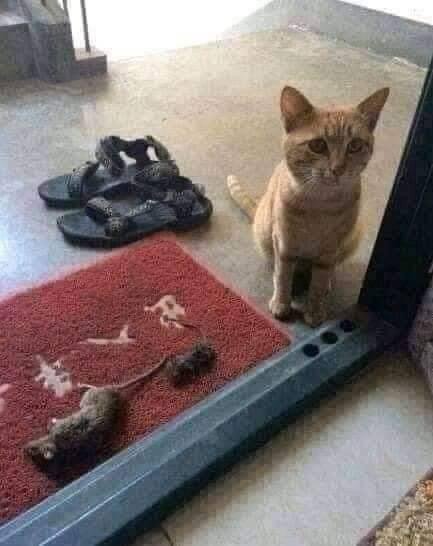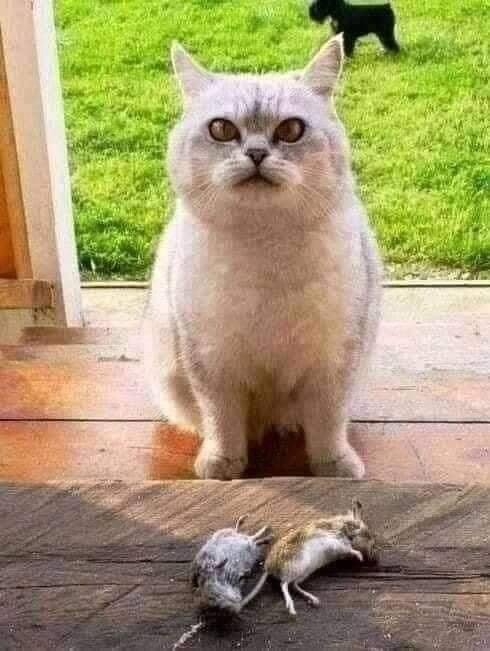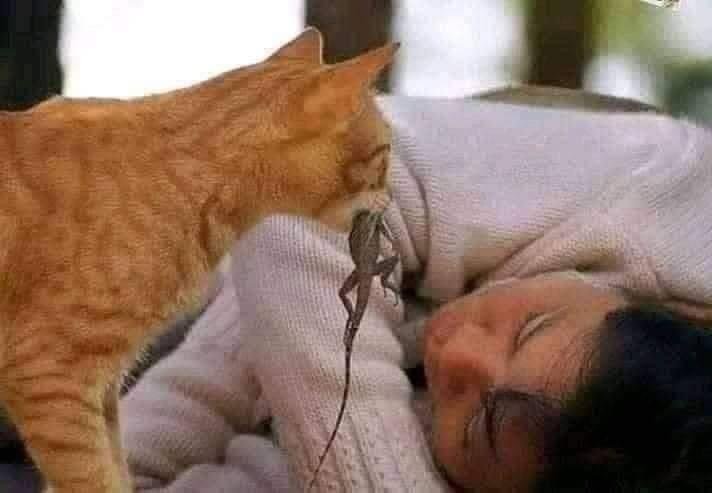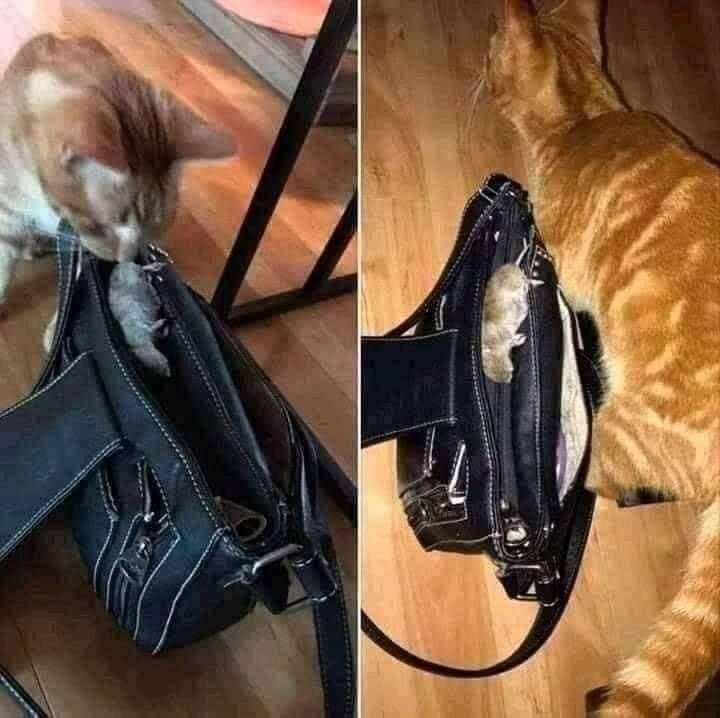Every cat owner has experienced that proud moment – your furry companion strutting towards you with what they consider a thoughtful present. While we might not always appreciate these offerings of mice, birds, or other small creatures, these gestures represent one of the most profound expressions of feline affection. It’s their way of saying, “I care about you, and I want to make sure you’re well-fed,” even if we’d prefer they kept their hunting trophies to themselves.
This fascinating behavior stems from cats’ instincts as both predators and nurturers. In the wild, mother cats teach their kittens to hunt by bringing them prey, starting with dead catches and gradually progressing to live ones. When our domestic cats bring us their catches, they treat us as family members who need to be taught these essential life skills. It’s a behavior deeply rooted in their maternal instincts, regardless of whether the cat is male or female.

What makes this behavior particularly interesting is how cats adapt it to modern domestic settings. Some might leave their “gifts” on doorsteps, others prefer presenting them near their human belongings, and some even announce their arrival with distinct vocalizations. These variations show how each cat personalizes their gift-giving ritual, making it a unique expression of their personality and relationship with their human family.
The persistence of this behavior in domestic cats, despite regular feeding and comfortable living conditions, demonstrates how deeply ingrained these instincts remain. Even well-fed house cats maintain their hunting skills, showing that this behavior isn’t solely about food but about keeping their natural abilities and social bonds. It’s a reminder that beneath their domesticated exterior, cats retain the complex behaviors of their wild ancestors.

From a scientific perspective, this gift-giving behavior serves multiple purposes. It helps cats maintain their hunting skills, establishes their territory, and strengthens social bonds within their perceived family group. When cats bring presents to their humans, they’re participating in a behavior that their ancestors used to ensure the survival of their species, adapted to fit their modern relationships with humans.
The way cats present their gifts often follows a pattern. They typically choose times when their humans are most active or present, suggesting they want their efforts to be noticed and acknowledged. Many cat owners report their pets seeming particularly pleased with themselves after delivering a gift, often staying nearby to observe their human’s reaction. This interaction highlights the social aspect of the behavior and its importance in the cat-human relationship.

Understanding this behavior helps us better appreciate our feline companions’ instincts and the ways they express affection. While we might prefer they didn’t bring us such presents, recognizing this as a sign of trust and familial bonding can help us respond more appropriately. Instead of scolding, which can confuse and distress our cats, we can acknowledge their effort while redirecting their hunting instincts to more appropriate toys and activities.
For those looking to manage this behavior, providing alternative outlets for hunting instincts can be effective. Interactive toys, puzzle feeders, and scheduled play sessions can help satisfy their natural predatory drive while keeping both cats and humans happy. These alternatives allow cats to express their instincts in ways that are more compatible with indoor living while maintaining the important social bonding aspect of their gift-giving behavior.

What makes these feline offerings particularly special is that they represent one of the most genuine expressions of a cat’s natural behavior. Unlike learned behaviors or responses to training, this gift-giving instinct shows us a pure, unfiltered aspect of feline nature. It’s a direct line to understanding how our domestic companions view their relationship with us and their role in our lives.
The next time your cat presents you with an unwanted gift, remember that this is their way of showing they consider you family. It’s a behavior that bridges the gap between their wild heritage and their domestic present, demonstrating both their hunting prowess and their deep social bonds with their human caregivers. While we might prefer different expressions of affection, these gifts are among the most sincere compliments a cat can give – they’re sharing their success with those they trust and love most.



